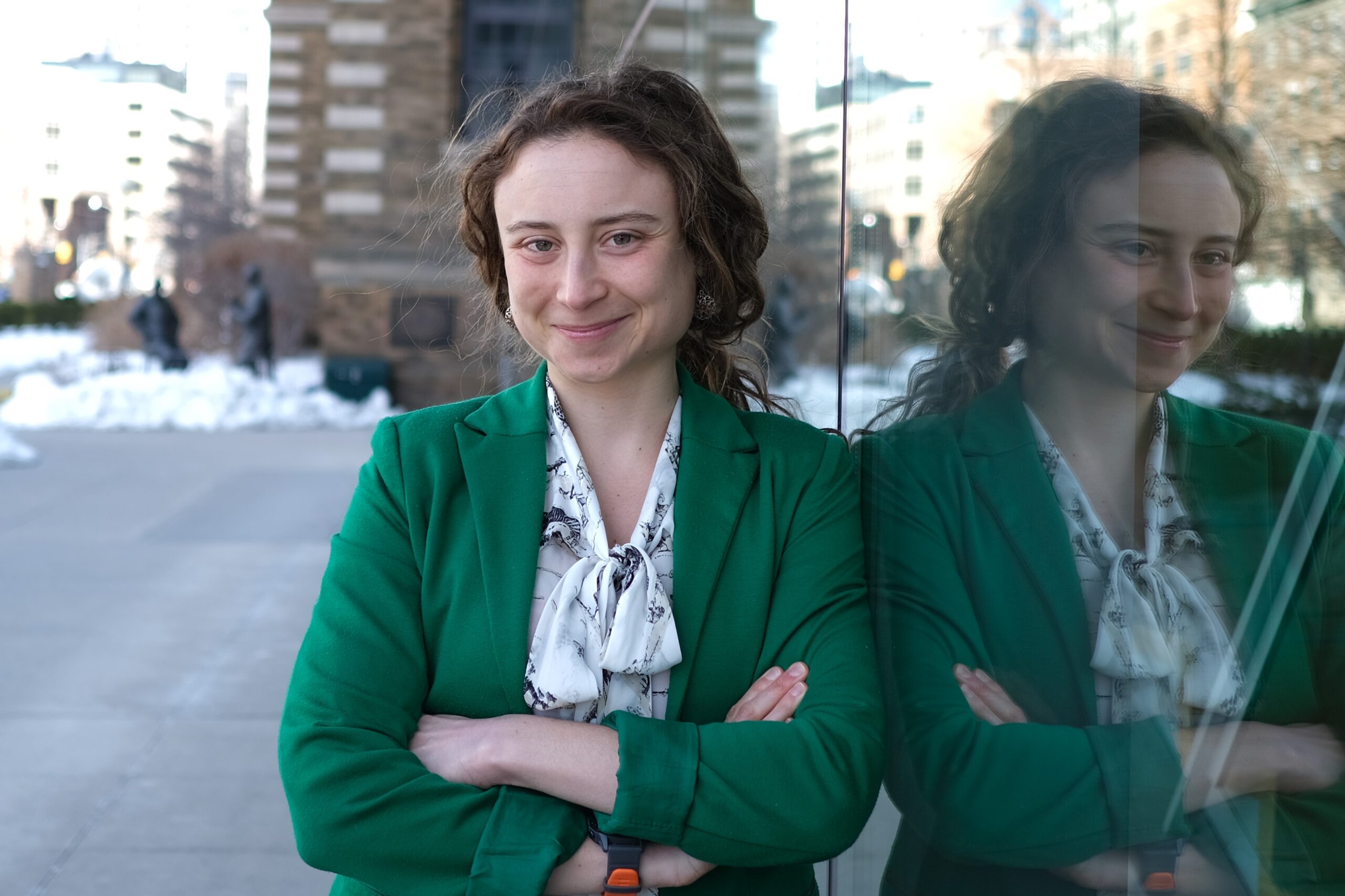August 9, 2023
By Betty Zou
Throughout her graduate studies, Hannah Kozlowski recalls her PhD supervisor reminding her that doing a PhD is a marathon, not a sprint. As an endurance runner who has completed six marathons — including the Boston and Chicago Marathons — Kozlowski found the advice relatable and memorable.
“Running and research are both ways for me to challenge myself,” she said. “It’s amazing what you can accomplish when you really dedicate yourself to something and push beyond where you were.”
In applying that same focus and drive to her academic pursuits, Kozlowski is the inaugural recipient of the Future Leaders Prize from the Emerging and Pandemic Infections Consortium.
The prize, to be awarded annually, recognizes outstanding PhD graduates at the University of Toronto who have completed an excellent infectious disease-focused thesis and demonstrated leadership outside of their scientific studies.
Kozlowski got her first taste of research during her undergraduate studies at U of T, where she focused on laboratory medicine and pathobiology and immunology. “I realized that research has this incredible ability to help people at scale,” said the MD/PhD student who will be starting her third year of the MD program this fall.
Driven by a desire have more direct impact through her research, Kozlowski pivoted to biomedical engineering for her PhD studies with Warren Chan, a professor in the Institute of Biomedical Engineering at U of T.
In Chan’s lab, Kozlowski was part of a team that developed a portable smartphone device that could diagnose COVID-19 and other infections in less than one hour. The device uses millions of fluorescent quantum dots — pieces of semiconducting materials about 1/10,000th the size of a human hair — to recognize specific genetic sequences in the virus. Kozlowski’s work was crucial to enhancing the sensitivity and specificity of the device in detecting SARS-CoV-2 in clinical samples. She further showed that this strategy could be used to detect SARS-CoV-2 variants.
Kozlowski’s PhD project underscores her keen interest in developing tools and strategies that can be deployed in low resource settings to manage infectious diseases more effectively. Building on those interests, she started a new research project with Shaun Morris, an assistant professor of paediatrics and a clinician-scientist at the Hospital for Sick Children, to improve public health surveillance for dengue.
There are an estimated 100 to 400 million dengue infections globally each year, the majority of which occur in low- and middle-income countries and are detected using rapid diagnostic tests. These tests can vary substantially in their sensitivity and do not provide information on the dengue virus subtype with which a person is infected.
With the support for an EPIC Researcher Mobility Award, Kozlowski is currently in Thailand working with researchers at the Mahidol Oxford Tropical Medicine Research Unit to co-develop a protocol using Nanopore sequencing, a type of genome sequencing, to diagnose dengue infections in patient blood samples. The fast and user-friendly technique, which requires minimal equipment, has been used to respond quickly to emerging outbreaks of infectious diseases. Kozlowski hopes that her project will demonstrate the advantages of Nanopore sequencing in providing more sensitive diagnostic test results and crucial information about viral subtype.

In between her academic and athletic pursuits — she just completed her first half-Ironman Triathlon in May — Kozlowski is also very involved in the MD/PhD community. She served as the MD/PhD class president from 2018 to 2020 and was instrumental in the creation of an innovative competency-based curriculum for the program. She was also invited to serve on the Temerty Faculty of Medicine Strategic Plan Working Group where she helped to develop a plan to promote research and innovation leadership in the faculty.
Kozlowski credits the MD/PhD program at U of T for inspiring and supporting her during her graduate and medical studies. “The U of T MD/PhD program is like no other. The community is really like a family – we celebrate together, we commiserate together. It is so inspiring being friends with these amazing people and learning from them.”
She hopes to one day establish her own research program focused on understanding a category of diseases called febrile illnesses of unknown origin, where a patient develops a fever for which no explanation can be found. Kozlowski believes that her medical training combined with her experiences in fundamental and applied research will allow her to make an impact in helping those patients.
“The power of an MD/PhD is that you understand these two different worlds and you can help close that gap between them. It’s quite powerful to be able to do that.”


